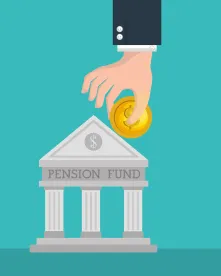A January proposal to give banks compliance slack floated by a high-ranking Federal Reserve Board (“FRB”) official has not yet gained the traction its supporters had hoped for.
In remarks before the American Bar Association Banking Law Committee on January 17, 2020, the FRB Vice Chair for Supervision, Randal Quarles, proposed limiting the Federal Reserve’s application of Matters Requiring Attention (“MRA”) identified in supervisory exams to legal and regulatory violations and “material” safety and soundness issues (i.e., those that could affect a bank’s supervisory rating). Compliance issues that are not legal violations would be flagged as “supervisory observations” – a category of findings FRB eliminated in 2013. Because a supervisory observation does not carry the same force as an MRA, the new proposal could provide banks with more flexibility in addressing the identified issues.
Currently, FRB uses MRAs to supervise banks’ compliance measures before deficiencies evolve into a legal violation. FRB issues MRAs after bank examinations to direct banks to remediate deficiencies that fall short of legal violations but that are potentially unsafe or unsound practices. Under the current supervisory framework, MRAs are reported to a bank’s Board of Directors and top financial executives to ensure the identified issues are addressed expediently. Since an unresolved MRA can lead to enforcement action, banks are generally under some pressure to timely resolve the MRA before the issue turns into a serious problem, and certainly in advance of their next examination.
If Vice Chair Quarles’s proposal is adopted, it could provide some relief to banks by reducing the number of MRAs issued after bank examinations, thereby easing reporting and escalation obligations and extending the timeline for the bank to respond to the identified observations. For banks that have been forced to disrupt their business-as-usual activities in order to dedicate sufficient resources to resolve MRAs, this development could be a welcome change, at least in the near term. Also, under the proposed approach, banks would arguably have more clarity about what activities constitute a legal violation as opposed to merely high-risk activities. However, such relief may be fleeting if the proposal is adopted. If use of MRAs is restricted, bank examiners might simply place greater emphasis on their “supervisory observations,” and later cite unaddressed observations as the basis of future MRAs or even enforcement actions.
Quarles repeated his remarks during a February lecture at Yale Law School, noting that this was an “objective [he would] be pursuing over the next year.” Some lawmakers, including Senator Elizabeth Warren, in a February letter to FRB Chairman Jerome Powell, have already cautioned against the adoption of Quarles’s proposed change, praising MRAs as an “early warning system” that protects against risks for both banks and consumers. Such warnings may influence FRB to clearly define the consequences of ignoring supervisory observations, should it proceed with amending supervisory processes. As of now, however, FRB has not submitted any proposed rule changes. Despite Quarles’ conviction of the necessity for these changes, it is unlikely that FRB will make any formal amendments to bank supervision in the near term, as it continues to address the financial crisis arising from the current COVID-19 pandemic.




 />i
/>i

